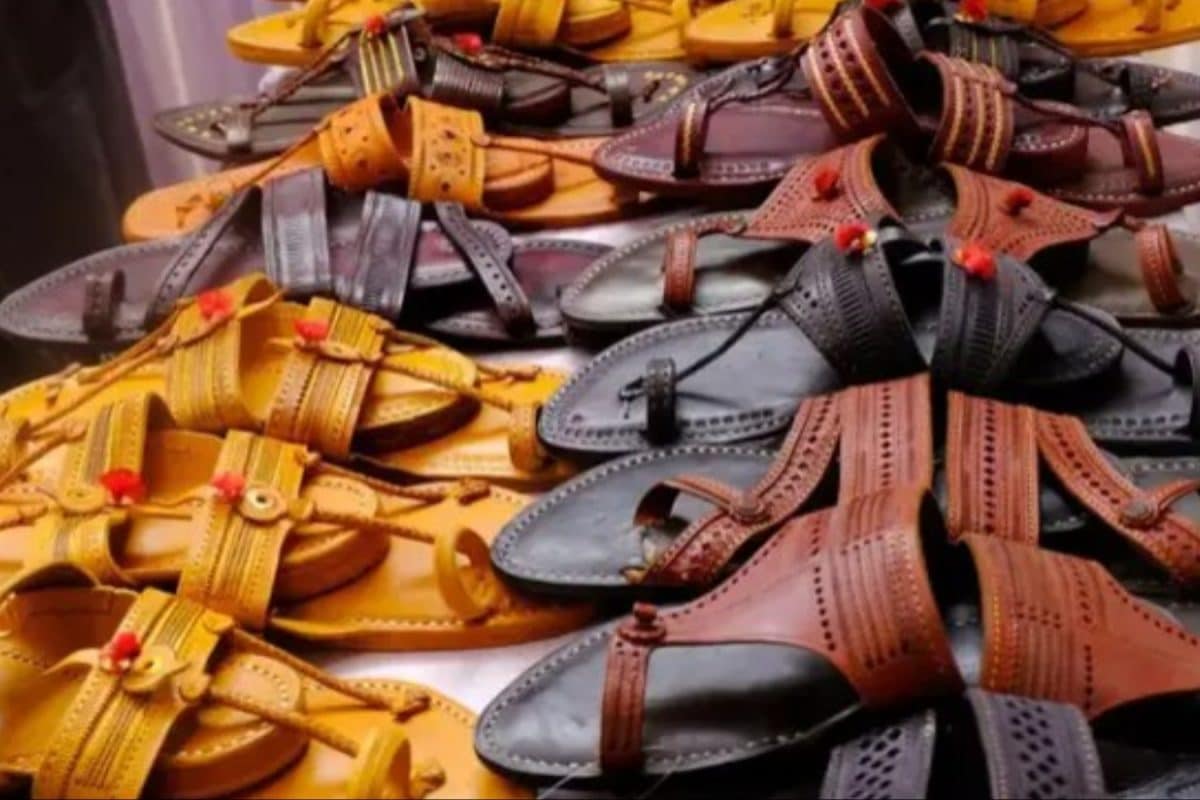

The Italian fashion house Prada is facing legal action in India after unveiling a sandal design that heavily resembles the traditional Kolhapuri chappal. A Public Interest Litigation (PIL) has been filed in the Bombay High Court, demanding compensation for the artisans who create these handcrafted leather slippers and seeking a formal apology from the luxury brand.
The controversy arose after Prada showcased its Spring/Summer 2026 menswear collection in Milan, which included open-toed sandals featuring the distinctive braided leather straps and intricate cutwork characteristic of Kolhapuri chappals. These sandals, priced at approximately ₹1 lakh (or $1,200), sparked outrage among Indian artisans and consumers, especially since authentic Kolhapuri chappals are typically sold for around ₹1,000. The primary concern was not the price markup but the perceived cultural appropriation and lack of recognition given to the Indian artisans who have preserved this traditional craft for generations.
The Kolhapuri chappal boasts a rich history, dating back to the 12th century. Originating in Kolhapur, Maharashtra, these slippers are crafted from vegetable-tanned leather, using traditional techniques passed down through families. In 2019, the Indian government granted Kolhapuri chappals a Geographical Indication (GI) tag, recognizing their unique regional heritage and protecting them from imitation within India.
The PIL, filed by intellectual property advocate Ganesh Hingmire, alleges "misrepresentation, cultural misappropriation, and unauthorized commercialization" of the Kolhapuri chappal design. It argues that Prada's actions not only disrespect the cultural heritage and economic interests of the artisans but also violate India's GI laws. The petition seeks to prevent international companies from infringing on GI-protected products and aims to safeguard the rights of the affected communities.
The PIL also calls for a court-supervised collaboration between Prada and artisan associations. This collaboration would focus on co-branding, capacity building, and revenue-sharing, ensuring that the artisans benefit directly from the commercialization of their craft. Furthermore, the petition requests government entities to establish policies and mechanisms for swift intervention against international GI infringement. The Maharashtra Chamber of Commerce Industry and Agriculture (MACCIA) views the controversy as an opportunity to enhance artisan skills and strengthen legal protection for heritage products. They have suggested that Prada impart technical skills to local artisans and establish an excellence lab for chappals and other traditional products.
Following the backlash, Prada issued a statement acknowledging that the sandal design was "inspired by Indian artisans". However, the PIL argues that this statement is insufficient, as it lacks a formal apology, compensation, or any concrete remedy for the artisans. The petition emphasizes that mere recognition in a private statement is inadequate, especially when it bypasses the artisans, the GI registry, and the public.
The controversy has sparked a broader debate about the protection of traditional knowledge and cultural heritage in the face of globalization. Experts emphasize the importance of enforcing GI rights and implementing strong policies to prevent the exploitation of traditional designs by international corporations. Several similar cases of biopiracy and cultural appropriation have occurred in the past, such as the Basmati rice patent and the turmeric patent, highlighting the need for greater vigilance and legal safeguards.
In the wake of the Prada controversy, Kolhapuri chappals have witnessed a surge in sales and renewed interest. Indian brands are seizing the opportunity to promote Kolhapuri craftsmanship and elevate it to global recognition. This incident has underscored the importance of preserving and promoting traditional crafts, ensuring that the benefits of their commercialization reach the artisans who have kept these traditions alive.